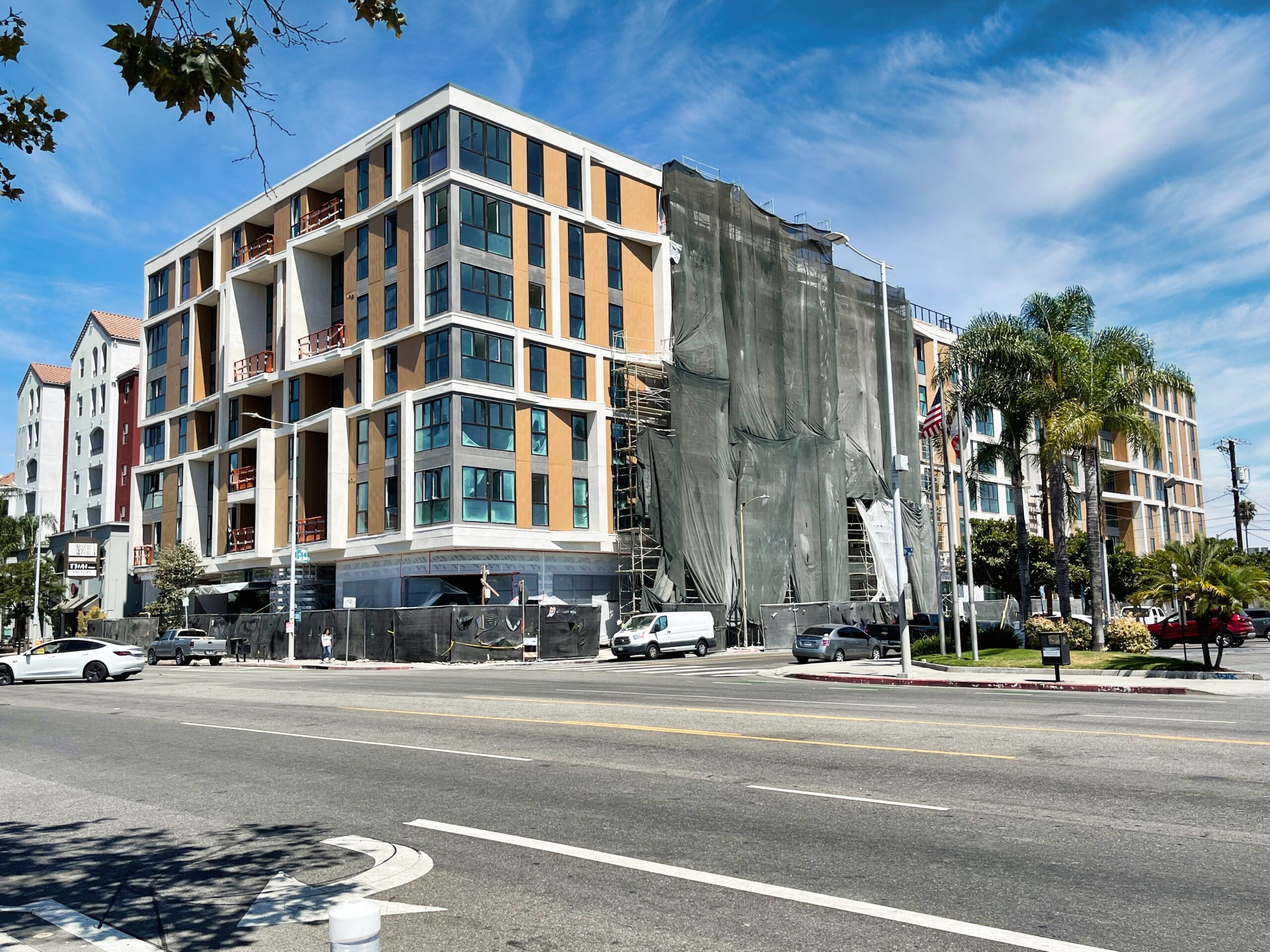This Wednesday, October 16, we’ll be making public comment at the city’s Housing & Homelessness Committee meeting. There, we’ll urge council members to amend the Just Cause for Eviction Ordinance to stop evictions for substantial remodels, and vote “yes” on an urgency ordinance to stop the surge of these evictions now. Learn more and get involved via our Public Comment toolkit!
October 11, 2024
By Chelsea Kirk, Director of Policy and Research, Building Equity and Transit
Since emergency COVID-19 renter protections ended, Los Angeles has seen an increase in “renovictions”—landlords using renovation work as an excuse to evict long-standing tenants and re-list their units for higher rents. These landlords are exploiting a loophole in city law that says “substantial remodels” are a valid reason for eviction.
The substantial remodel loophole, as outlined in Los Angeles Mun. Code, § 165.03 subd. (I)(2), permits landlords to evict by claiming that renovations to a building or unit will require tenants to vacate for more than 30 days. According to data obtained by the Los Angeles Housing Department, it is mostly corporate landlords that have been using this loophole to evict long-standing tenants and reset rents to market rate in units otherwise protected by the Tenant Protection Act of 2019 (AB 1482). In videos posted to YouTube, landlord attorney Dennis Block describes the substantial remodel loophole as a way to “beat rent control” and advises landlords to use it to remove tenants paying below market-rate rents who they otherwise would have no basis to evict.
Over the past 18 months, more than 200 households across all 15 districts have been impacted by substantial remodel evictions. All over the city, corporate landlords are purchasing non-RSO buildings, immediately issuing evictions for substantial remodeling work, and then raising the rents. Most tenants do not have the resources to fight these evictions in court, and so they self-evict. In Council District 11, one 60-year-old tenant was forced from her home of over two decades when a corporate landlord purchased the building and issued an eviction notice for “substantial remodel” work. She was also the property manager there, and so the eviction also caused her to be unemployed. Her rent is now double what it was, and she is struggling to make ends meet.
Those who do fight renovictions are often subject to repeated eviction filings when first or second attempts don’t work. In an Echo Park building organized by the Los Angeles Tenants Union, twenty-one tenants from five households—including five children still in school and eight seniors—organized a tenant association to fight multiple eviction attempts since corporate landlord FJ Equities purchased their building in late 2022. FJ Equities has repeatedly tried to claim bathroom and kitchen remodels necessitate evictions. Not only is this work unnecessary, it is being carried out to market the units to higher-paying tenants. After one household agreed to a buyout from FJ Equities, their $800/month unit was listed online for $3,500/month. This household now rents in Corona and commutes to Los Angeles for work because they can no longer afford to live here.
More than 60,000 notices of intent to evict have been filed in Los Angeles since January. This is a crisis. We cannot afford to wait any longer—City Council must amend the city’s municipal code to remove substantial remodels as legal grounds for eviction. They should also place an emergency moratorium on renovictions immediately—otherwise, landlords will rush to serve eviction notices and file cases before the permanent ordinance can be passed. Finally, the city should use its existing Tenant Habitability Plan to temporarily house tenants if building renovation work is necessary. Right now, the plan only extends to properties that fall under the rent stabilization ordinance. Council should extend it to protect Los Angeles tenants.
No one should lose their home because their landlord decides to renovate or remodel, especially if the landlord intends to flip the unit and rent it out at a higher rate.

